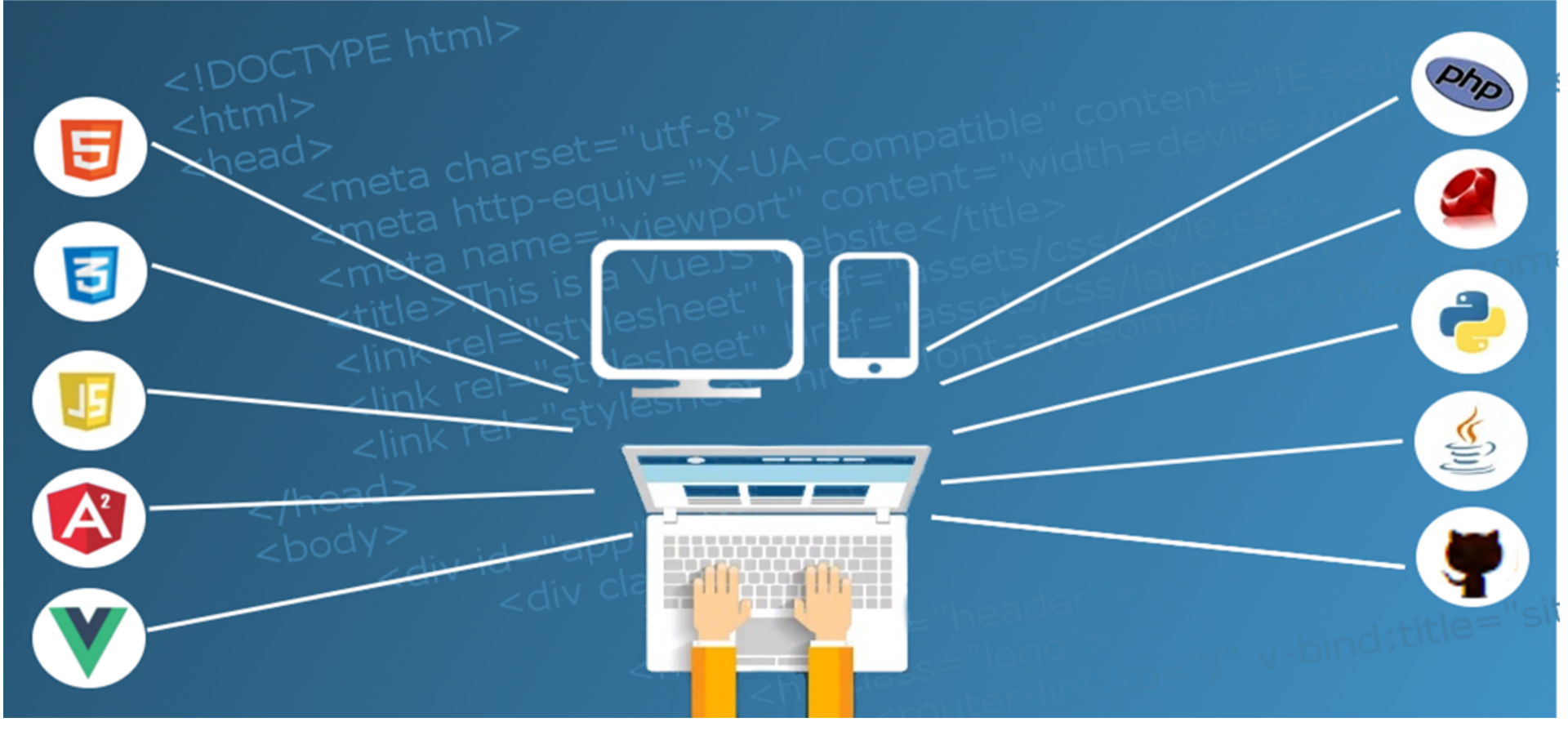Frameworks and CMS (Content Management Systems) have become integral and indispensable partners for web developers. Web applications standards change every day and expectations become higher. As such, the technology needed to keep up becomes more complex. Thankfully, web developers don’t need to reinvent functions to develop apps or develop sites. They simply rely on a framework’s already-created functions and a CMS’s accessibility. This helps them create web apps and sites faster, cheaper, and with more optimized features. Why reinvent the wheel, each time? Here’s a look at the best frameworks and CMS for web development in 2019.
Frameworks and CMS: Defined
A framework is a tool that is designed to make web application development faster and easier. It works by providing a standard way to build web apps. Frameworks help automate the web development process by reusing codes that other developers have already created, instead of reinventing them.
CMS, on the other hand, makes hand-coded HTML websites obsolete (sort of). CMS provides an easy way to manage your website’s content such as texts, фотос, and other media, user accounts, and files. It also allows the user to view stats and analytics and integrate other business processes into the website.
Best Frameworks and CMS for Web Development in 2019
Part 1: The Best Frameworks
- Symfony 4
A favorite of many providers of web development services in Sydney and beyond; Symfony 4 is super flexible and is loaded with components that can be used and reused. It also includes a built-in testing function to make sure that apps behave the way they were designed. Additionally, compared to version 3, Symfony 4 has considerably less code and files which makes it easier to learn, configure, install, and launch.
- Laravel
Laravel, an MVC framework using PHP, the web’s most used language; has made a name for itself, despite being relatively new. It’s easy to use and flexible with many add-ons. It also allows developers to work quickly because they can skip many of the groundwork and skip ahead to functions like caching, session management, user authentication, among others. On top of all that functionality, Laravel integrates seamlessly with third-party platforms like Amazon Web Services, helping website development companies build apps that are highly scalable. The best part, perhaps, is it’s supportive community sharing help and information to new and experienced developers alike.
- CakePHP
CakePHP is an oldie but goodie. Although, it’s 19 years old, it’s still one of the best and most widely used PHP frameworks in the market. Over the years, CakePHP has been improved with a lot of added components along the way. Nevertheless, what made developers love this framework is its set of conventions which, when mastered, allowed them to focus on the development itself.
- CodeIgniter
CodeIgniter is another PHP framework using a Model View Controller architecture. It has different components to do different tasks; something appreciated by developers because it helps them develop highly-scalable web apps using a smaller footprint. CodeIgniter packs a solid performance that’s easy to learn and master.
- Rails
Rails uses the programming language Ruby. It’s so popular that it’s a favorite among household sites like Shopify, Airbnb, Hulu, and GitHub. Rails is amateur-proof and, despite debates on its advantages and benefits, it is a very good framework for beginners. Other than the ease of use, Rails also has a friendly community of geeks ready to help developers with tutorials and resources.
- Django
This Model View Template framework is written in Python and provides excellent security and authentication measures. Django is also capable of protecting a site from weaknesses such as clickjacking, cross-site scripting, and SQL injection. It’s no wonder Django is used by the giants of the industry like Instagram, Youtube, Disqus, Google, and NASA. A firm believer in the ‘Don’t-Reinvent-The-Wheel’ principle, Django ensures the components can be reused.
- Spring
Java is the most popular programming language ever. Spring is one of the pioneering Java frameworks and its adaptability and continued improvements make it one of the best. Spring is modular which makes it easy to write clean and very accessible code. It also has app development and security feature toolkits for software engineers, amateurs and experienced, alike.
Part 2: The Best CMS Platforms
- WordPress
WordPress does not only dominate the market share, as far as CMSs go; it’s also one of the easiest and most customizable to use. It’s gone beyond its blogging days to provide users, both experienced web developers and amateurs alike, with the best content management experience. With its simplicity, powerful features, and countless plugins and themes, no wonder, it’s one of the best CMS for web development in 2019 and possibly beyond that.
- Joomla!
Up there with WordPress, is Joomla!, another household name in CMS software. Although, it may be a bit more complicated than WordPress for amateurs, Joomla! boasts of more flexibility on things like custom post types and more options on user management like those used in membership-based websites. Joomla! Also has built-in multilingual support and allows users to use different themes simultaneously.
- Magento
Magento might be tagged as a professional e-commerce CMS but it can work for all store types and all sizes. In fact, Magento has three editions – namely Enterprise, Cloud Enterprise, and Community – to suit the business’ size or requirements. It also offers power-packed features like a library with countless extensions, built in SEO functions, order management tools, and a thriving community for support.
- OpenCart
Another e-commerce CMS platform is OpenCart; and it was designed for convenience. Any business can quickly launch stores that are highly-customized with this CMS. From a single dashboard, a business owner has the ability to manage and track multiple stores. It also allows them to track the metrics like sales and other analytics easily. The makers of OpenCart really paid attention to detail giving the owner the ability to accept different payment methods, differentiate the products according to their attributes, among other neat functionalities. It truly does not get much simpler and easier.
There it is, the list of the best frameworks and CMS for web development in 2019. Frameworks and CMS are important partners for web development in Sydney and all over the world. And website development companies rely a lot on them to create websites and applications quicker and more customized to fulfill their client’s needs.

